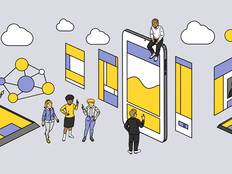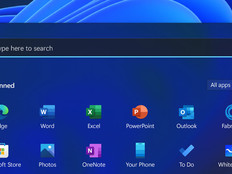Personalized Data Leads to More Accurate Mental Health Assessments
Mental health assessments have traditionally relied on self-reporting, where data is subjective and cumbersome to collect. According to researchers, such assessments rarely determine if a person’s behavior should be considered normal or abnormal for that individual.
For example, changes in social communication and sleep patterns may say a lot about a person’s mental well-being — but only if a medical professional understands what is normal for this individual. On the other hand, the objective, real-time data that smartphones, wearables and smart home technologies collect can reveal troubling changes in behavior, which in turn can help students access more timely and personalized support.
At Fairfield University in Connecticut, for example, students began using teletherapy last year. Without revealing identifying information, the service allows administrators to view statistics on what students are struggling with. This tool can help higher education leaders and educators adjust their approaches for student support.
While improper use of technology can have an adverse effect on mental well-being, the ubiquity of smart devices offers an opportunity to provide timely, personalized and scalable interventions.
MORE ON EDTECH: Learn how a smart campus can reinvent the student experience.
Early Detection and Intervention Can Save Lives
An August 2020 Centers for Disease Control and Prevention study found that suicide ideation was particularly high among people between the ages of 18 to 24. Experts agree that early detection is critical for preventing suicide.
But conventional counseling can miss early signs of deteriorating mental health if a student only has time to speak during evenings or weekends. Campus counselors are often only available during normal business hours.
MORE ON EDTECH: Learn how to create better student support structures for remote learning.
“Currently, mental-health services are mainly provided through a century-old model in which they are made available at times chosen by the mental-health practitioner, rather than at the person’s time of greatest need,” psychologists Jonathan Haidt and Nick Allen wrote in a Nature online news forum. “But Internet-connected devices are facilitating the development of a wave of ‘just-in-time’ interventions for mental-health care and support.”
Because telemental health can give students, faculty and staff convenient access to mental health specialists at all hours of the day, it could be a lifesaving approach to detecting early signs of deteriorating mental health.
This article is part of EdTech: Focus on Higher Education’s UniversITy blog series.












